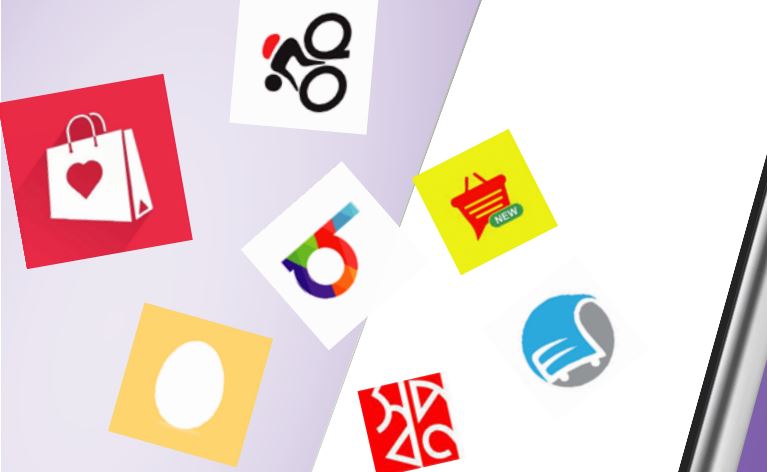In Bangladesh, from 3 January 2020 to 23 April 2021, there have been 736,074 confirmed cases of COVID-19 with 10,781 deaths, reported to WHO. As of 19 April 2021, a total of 7,423,274 vaccine doses have been administered according to World Health Organization.
As the consequences of this global crisis continue to affect our lifestyle as well as the world around us in 2021, the majority of the industries are taking the toll due to decrease in demand, disruption of supply of goods and services and barriers that hinder the supply chain.
However, the same cannot be said for all types of industries in the economy. In fact, we have seen an opposite effect in terms of E Commerce and F-Commerce (online business through Facebook) sectors. We are witnessing an unprecedented increase in the demand for products of certain businesses and overall growth of customer base due to increase in health awareness but mostly owing to the lock-downs imposed time to time which makes ordering online more convenient than ever. Khadiza Akter Mitu is a homemaker living in the suburbs of Dhaka. She had never ordered anything online until recently as the lock-downs imposed by the government made it difficult for her to go shopping. “Spending a few minutes online to check whether there’s something I need to buy has become a daily routine for me. Especially, the home delivery service makes things easy for me. I fear for my child and cannot go out like before.”, said Ms. Mitu. New customers like her are one of the prime reasons for the significant growth in the E-commerce customer base.
We also have to consider the pre-pandemic scenario of the E commerce sector in Bangladesh. The sector had been gradually growing as more and more consumers were buying goods online since its inception in 2009 when Bangladesh Bank officially permitted the online payment system through “Bangladesh Payment and Settlement Systems Regulations, 2009” as well as the start of WiMAX Internet in Bangladesh. SSLCOMMERZ started providing payment services which further paved the way to success. As smartphones were becoming popular and affordable, the sector started to experience steeper growth because more people had access to E-commerce sites. Within a decade, the E-commerce sector has experienced significant growth due to the increase in both local and international competition in the market and development of e-commerce infrastructure.
Bangladesh was ranked 46th largest market globally in terms of e-commerce in 2019. There are approximately 2,500 E-commerce sites in Bangladesh according to a report by New Vision. In addition, there are almost 150,000 F-commerce outlets having a market size of BDT 312 crore according to the IDLC business review from 2019. During the pandemic several new sellers who couldn’t afford a dedicated e-commerce site came forward and started selling protective gears mostly through Facebook leading to an unprecedented boom in the F-commerce sector.
Grocery retail e-commerce market for instance: Chaldal.com, Swapno, Khaas Food, Meena click etc. were thriving before the pandemic. However, during the lockdown, the number of orders boomed on their platform but they fell short of fulfilling their orders timely. To capitalize on this unprecedented demand, firms like FoodPanda, PriyoShop, Pathao, Othoba, Daraz etc. started offering daily groceries, pharmaceuticals etc. Leading processed food suppliers such as Kazi Farms, Aarong Dairy, Golden Harvest did not sit back. They also offered home delivery services as people were unable to go outside. This is how the grocery retail e-commerce sector experienced growth and evolved during the pandemic.
Moreover, many multi-vendor e-commerce sites (such as Alesha Mart, Aladinerprodip.com, Akashnil, B71bd.com etc.) were born during the pandemic to get a slice of the pie. A number of new delivery and logistics services are also being established to meet the demand of the increased number of e-commerce sites. As the pandemic is taking away many jobs and tuitions, there is a strong demand for working in such delivery and logistics services. Hence, the e-commerce infrastructure is developing now more than ever. The government, during the recent lock-down, has included product delivery services as an emergency service.
What about the role of women in this e-commerce boom? About 4,00,000 women entrepreneurs are working side-by-side men and are offering their products on F-commerce and other E-commerce platforms according to New Age. Srabony Rahman Mim, an undergrad student, started her journey in Facebook last year during the pandemic offering imported Bags & Shoes. “I dreamt of starting something and yes obviously Facebook played a huge role here. I started it with very small amount of capital so without Facebook it would have been tough for me to continue.”, said Srabony. She is not alone. Many female students of the University of Dhaka can be seen promoting their unique products on Dhabian Business Community (DBC); a Facebook group establish to provide support to the university’s students regarding their SMEs and startups. The group has been popular particularly during the pandemic period and products ranging from hand-printed Panjabis to freshly caught fish from village ponds can be seen on the platform.
That’s not all. Last year due to the pandemic and restrictions, we had seen many e-commerce sites offering cattle for Eid-ul-Adha as well as slaughtering services in an attempt to transform the highly traditional makeshift cattle market (known as “Gorur Haat”) to an online marketplace. Mahin Rahman Saquif is the founder of Hasina Agro, a f-commerce startup that links buyers and sellers of cattle, seemed optimistic about Eid-ul-Adha 2021. “In the last Kurbani we got numerous responses from the customers. Finally, we had sold six cattle. We gave doorstep delivery of all the cattle. Our customers delighted with our service.”, he said. It seems everyone is trying to create a market for everything online during the pandemic (which is a good thing!).
Nevertheless, there are numerous problems faced by both E-commerce and F-commerce sectors for instance: the lack of proper policies to support the system, dependence on cash transaction, weak security of transaction, slow and costly internet packs, no specific planning for E-commerce infrastructural development and lack of government support and human resources. In addition, the people working behind such online services aren’t given proper credit. Recently, a man was arrested for beating a food deliveryman. Also, online food delivery platforms and restaurants submitted a letter to the cabinet division demanding 24/7 operations and that officers, employees, online staff engaged in e-commerce be recognized as Covid-19 frontline activists.
Despite all the positive effects derived from the pandemic, Bangladesh has fallen from 103rd position to 115th on the United Nations Conference on Trade and Development’s (UNCTAD) Business-to-Consumer (B2C) E-commerce Index 2020.
Now the question is “Will this unprecedented growth in the E-commerce sector sustain in the long run? Will such small online businesses survive in the post-pandemic period?” Only time will tell.




